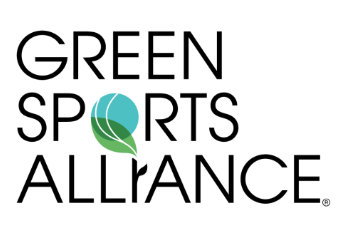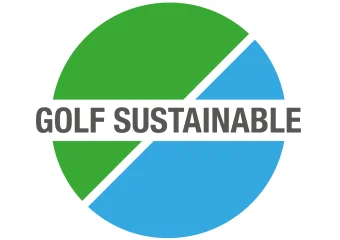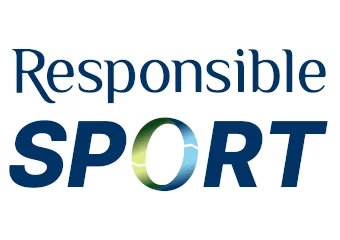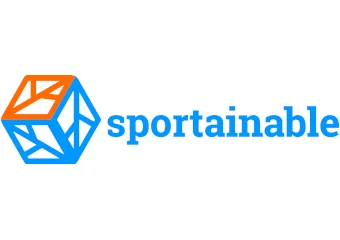To access our unique news archive of over 1,400 articles with insights on over 500+ sustainable sports organisations, join the GSS Network today.
Login here if you are a registered network subscriber.
News article
Top storyRacing Resilient: BHA’s Ambitious Roadmap to Safeguard the Sport’s Future
Speaking exclusively to Global Sustainable Sport, Katie Carr, the Head of Environmental Sustainability at the British Horseracing Authority (BHA), has detailed the launch of a comprehensive suite of strategies designed to safeguard the future of the sport. The BHA has recently published its landmark environmental strategy, Racing Resilient, alongside a broader industry-wide framework. A third key document, focusing on the sport's social impact, is also set for release this week.
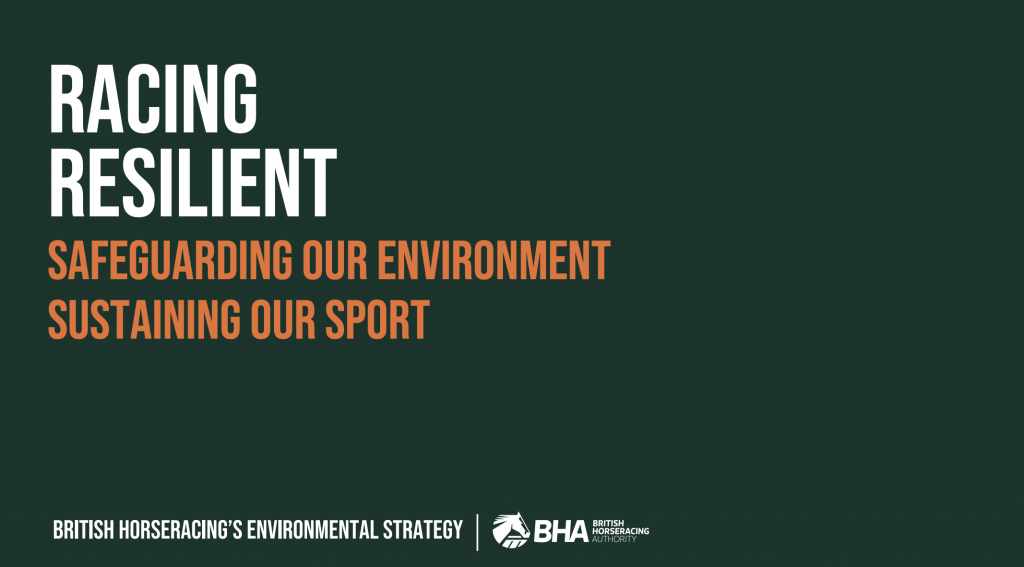
This coordinated effort marks a pivotal moment for British horseracing, moving to tackle sustainability challenges with a data-led, collaborative, and long-term vision. The new environmental plan, Racing Resilient, has been developed with support from the Racing Foundation and is a central pillar of the wider industry strategy to secure a sustainable future for its horses, people, and businesses.
“It’s been designed as a roadmap to 2030,” Carr explained. “The main things it’s looking at doing is safeguarding the sport, improving the resilience, and making sure the sport stays relevant. There are four key focus areas around carbon, water, nature and Waste and Resources. A lot of sports are able to focus in on one that might be more important to them; with racing, unfortunately, we have a huge touch point on all of those areas”.
“It’s been designed as a roadmap to 2030. The main things it’s looking at doing is safeguarding the sport, improving the resilience, and making sure the sport stays relevant. There are four key focus areas around carbon, water, nature and Waste and Resources. A lot of sports are able to focus in on one that might be more important to them; with racing, unfortunately, we have a huge touch point on all of those areas”.
A Data-Driven Roadmap
A core theme of the new approach is its foundation in evidence and data. Rather than launching with a list of prescribed actions, the strategy is structured in three distinct phases, with the initial phase dedicated to building a clear picture of the industry’s environmental footprint.
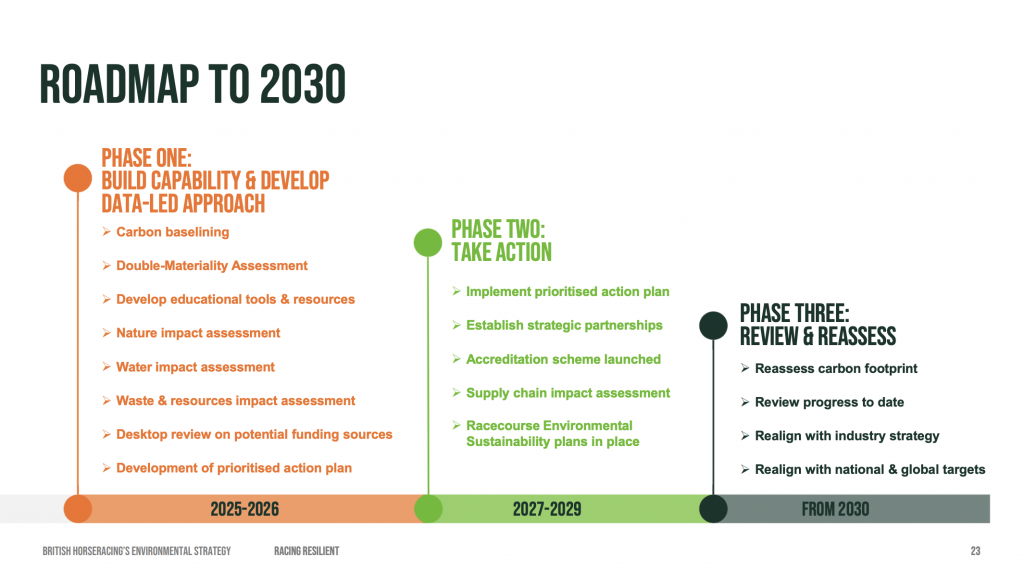
Phase One, running until the end of 2026, is focused on data gathering and analysis. “Stage one of the strategy is, develop the data,” Carr stated simply. This involves an ambitious project to work with all 59 racecourses across the UK to establish a comprehensive carbon footprint of racing activities. This will be supplemented by data from stud farms and trainers, using tools like the Stud Farm Carbon Calculator to create an indicative footprint for the breeding and training side of the industry.
Alongside the carbon baselining, the BHA is conducting a double materiality assessment through interviews with key stakeholders to prioritise efforts where they can be most effective. This initial 12-to-16-month period will also serve as a crucial education and engagement tool, particularly for racecourses, to improve carbon literacy and understanding of their own impacts. The BHA is working with the consultancy Sporting Giants to deliver this first phase.
Phase Two (2027-2029) will involve implementing a prioritised, three-year action plan based on the evidence gathered in phase one.
Phase Three (from 2030) will be a point to review progress and realign the strategy with updated national and global targets.
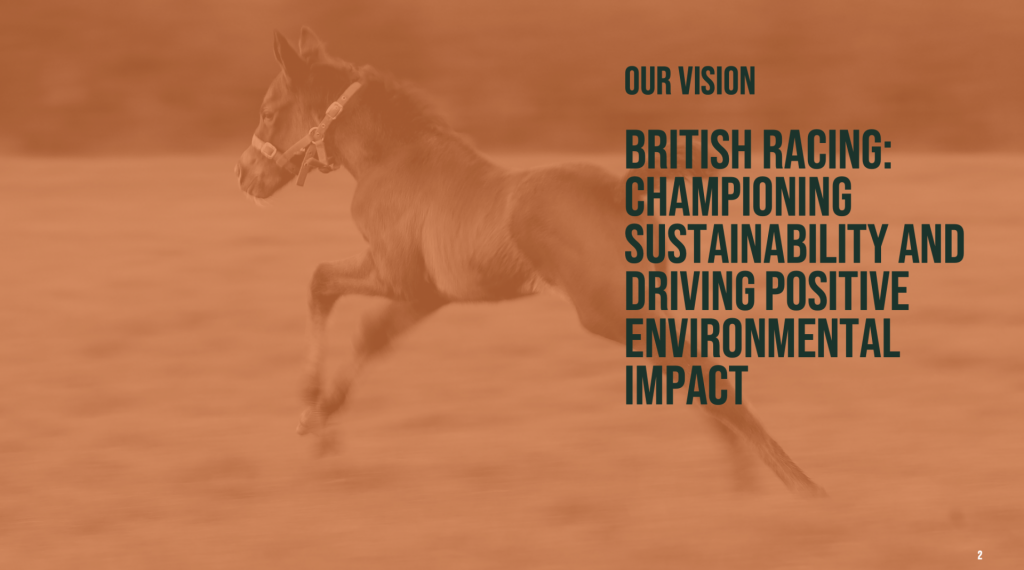
A Collaborative Industry Effort
The strategy is not a standalone document but sits within a much broader
Industry Strategy Framework for British racing. This overarching plan outlines a vision for the sport to be “world-class, thriving and connected with the nation”. Crucially, one of its six strategic priorities is to “ensure responsible care of our people, communities & environment”, making the environmental and social strategies integral to the sport’s overall direction.
Carr emphasised that the entire process has been built on collaboration, bringing together a historically fragmented industry. From workshops to a dedicated committee, stakeholder groups representing racecourses, breeders, and trainers have been involved from the outset. The strategy covers the full life cycle of the sport, from breeding and training to the sporting stage itself.
This collaborative spirit has been one of the most encouraging aspects of the project. “That’s been one of the most amazing parts of the process is getting all of those stakeholders together and seeing the level of motivation,” Carr noted.

“That's been one of the most amazing parts of the process is getting all of those stakeholders together and seeing the level of motivation,”
The initiative has received vital backing from two major funders within the sport: the
Racing Foundation, which funded Carr’s role and the development of the strategy, and the Levy Board. This financial support underscores the industry’s commitment to making the strategy a viable and achievable reality. With a clear roadmap, strong stakeholder buy-in, and a commitment to being evidence-based, British horseracing is laying the foundations for a resilient and sustainable future.
Read moreBritish Horseracing Authority (BHA
Join the GSS Alliance Partners programme today
Stay ahead of the game with our FREE weekly newsletter, delivering the latest sport and sustainability news from around the globe straight to your inbox
Join the GSS Network programme today
Register for GSS Workshops today
Join the GSS Education programme today










